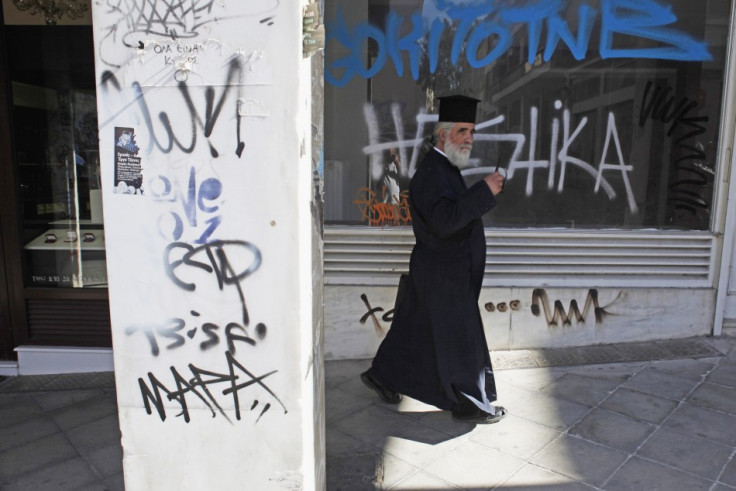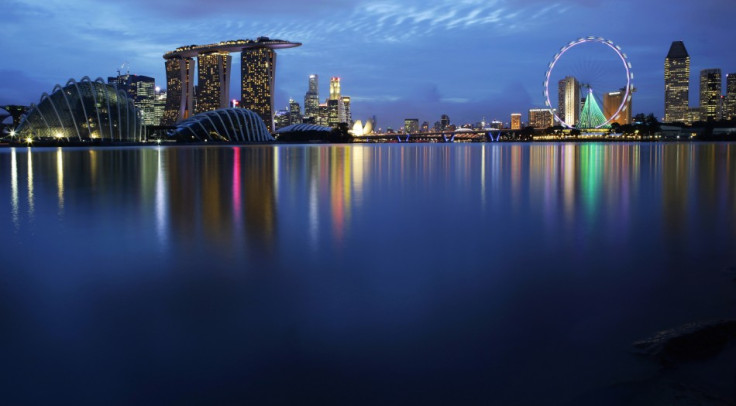Index of Economic Freedom 2013: Greece Ranks Last in Europe

Greece has ranked last in Europe and 117th in the world an index measuring global economic freedom, trailing Guatemala, Senegal and Albania due to its severely high unemployment, weak taxation and other critical issues that are being exacerbated by the sovereign debt crisis.
According to the annual benchmark Index of Economic Freedom for 2013, constructed by US think tank Heritage Foundation in partnership with the Wall Street Journal, Greece ranks 117 out of 177 countries and only one position above Malawi as the economic and working environment in the country gets worse, while Asia-Pacific countries dominate the top spots [Fig 1.]
"There are major weaknesses in taxation, exacerbated by the debt crisis and unemployment, lacking efficacy, in the fifth consecutive year of recession. Despite the fiscal packages disbursed to ensure liquidity, double-digit deficits and large increases in loans still exist. Unemployment is rising, while unions and other special interests stifle or delay changes in market conditions," says the report.
Today, Eurozone debt crisis issues returned to focus as the International Monetary Fund (IMF) approved the next tranche of bailout funds to Greece, after the embattled nation took up bond repurchase measures and managed to pass stiff austerity measures.
Releasing the €3.24bn aid, IMF managing director Christine Lagarde noted that the bailout scheme was moving in the right direction. But she urged Athens to take up more measures to strengthen the economy.
"Major fiscal weaknesses exposed and aggravated by the debt and employment crisis have not been sufficiently addressed as the country enters its fifth straight year of recession. Double-digit deficits and large increases in borrowing have continued even while multinational financing packages have been approved to keep the government solvent. Unemployment, particularly among young people, continues to rise, and adjustments in market conditions have been stifled or delayed by public unions and other special interests," adds the Economic Index Freedom report.
![[Fig 1] World Economic Freedom Index 2013 (Graph: Heritage Foundation website]](https://d.ibtimes.co.uk/en/full/336436/fig-1-world-economic-freedom-index-2013-graph-heritage-foundation-website.jpg?w=736&f=086e2eb16af72baf7da6fe9f6ec89d54)
US and UK lag Behind
The US lost ground for the fifth consecutive year by ranking 10th, following declines in monetary, business, labour and fiscal freedom.
The US also recorded its lowest Index score since 2000 as "dynamic entrepreneurial growth is stifled by ever-more-bloated government and a trend toward cronyism that erodes the rule of law," says the report.
"More than three years after the end of recession in June 2009, the U.S. continues to suffer from policy choices that have led to the slowest recovery in 70 years. Businesses remain in a holding pattern, and unemployment is close to 8 percent. Prospects for greater fiscal freedom are uncertain due to the scheduled expiration of previous cuts in income and payroll taxes and the imposition of new taxes associated with the 2010 health care law," it adds.
However, the UK did gain ground in the index by 0.7 points, ranking it 14<sup>th overall, reflecting efforts to improve control of government spending.
"With a legal system that enforces contracts and property rights effectively, the UK has long benefited from openness to global trade and investment. Reforms undertaken in recent years include measures to curb the growth of government spending and a series of corporate tax rate cuts that will continue until 2014. Ending the steady erosion of economic freedom during the past five years, Britain's overall score took an upturn in the 2013 Index," says the report.

Asia-Pacific Leads the Way
Asia-Pacific countries dominated the index for 2013, with Hong Kong, Singapore , Australia and News Zealand ranking first to fourth respectively.
For the 19<sup>th consecutive year, Hong Kong has topped the index, following its "highly competitive regulatory regime, coupled with an efficient and transparent legal framework, sustains vibrant engagement in global trade and investment."
The report says that "there is little tolerance for corruption. Economic interactions with China have become more intense and sophisticated, and trade and financial linkages with the mainland have grown significantly. Hong Kong continues to demonstrate a high degree of economic resilience and remains one of the world's most competitive financial and business centers."
Resilience to the global credit crisis since 2007 has also enabled Singapore, the triple-A rated powerhouse at the heart of Asia, to come in second place.
The report says that "prudent macroeconomic policy within a stable political and legal environment has been the key to Singapore's continuing success in maintaining one of the world's highest levels of economic freedom. Well-secured property rights promote entrepreneurship and productivity growth. A strong tradition of minimum tolerance for corruption is institutionalized in an efficient judicial framework, strongly sustaining the rule of law."
"Singapore's openness to global trade and investment has facilitated the emergence of a more competitive financial sector and continues to provide real stimulus and ensure economic dynamism," it adds.
© Copyright IBTimes 2025. All rights reserved.






















